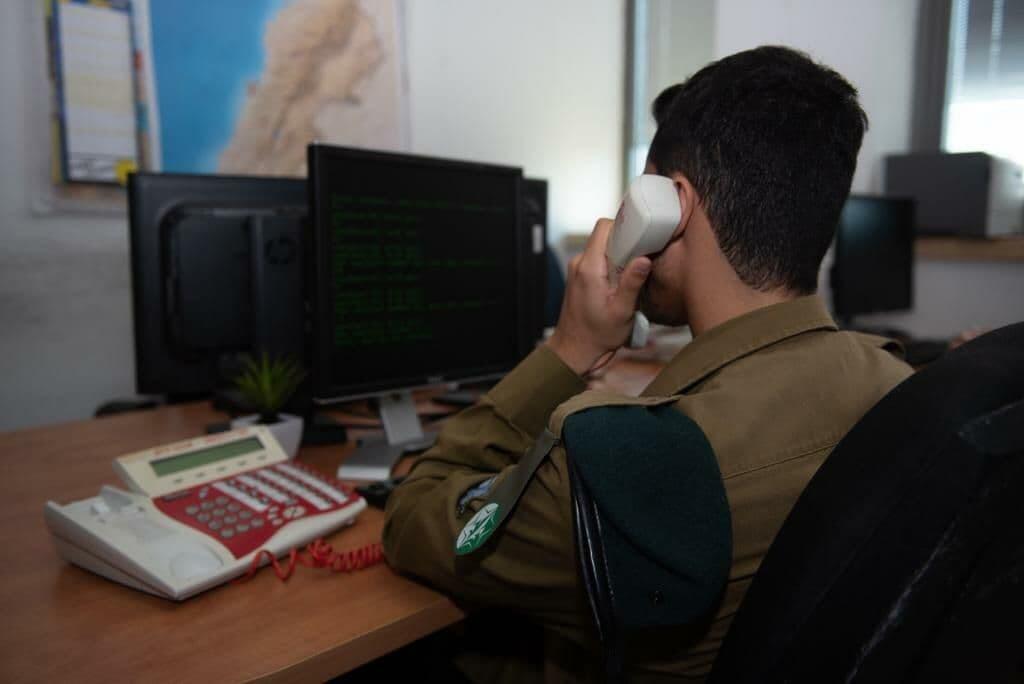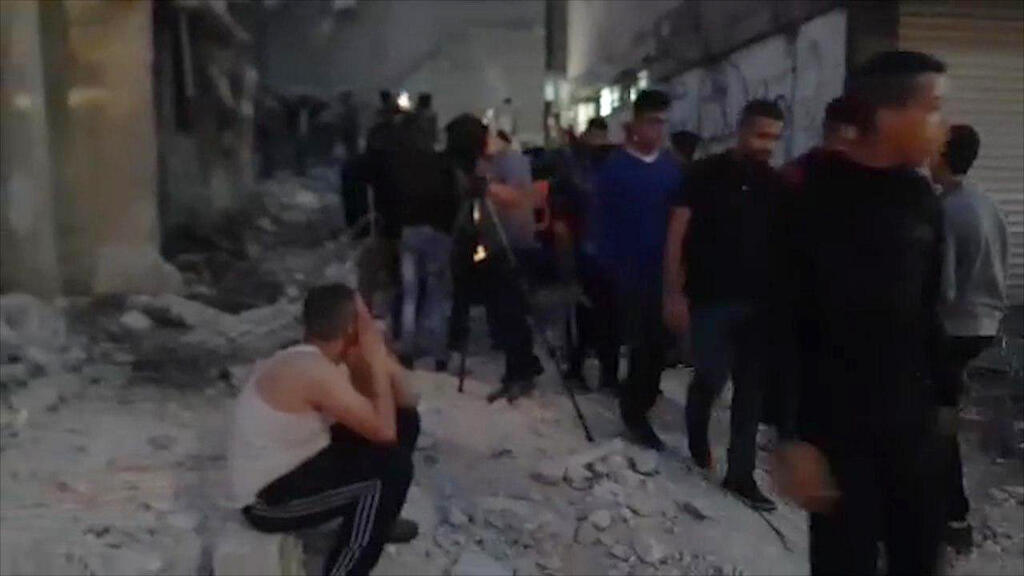Getting your Trinity Audio player ready...
These days the tensions in the West Bank and Jerusalem are at their peak. On paper, the Israeli security officials are doing everything right - conducting daily briefings, doubling the number of operations in the area, utilizing the use of technological means. All in an effort to stop the current wave of lone wolf terror attacks.
Despite the unstable security situation, officials insist that at this point it's not the same "lone wolf terrorism" that hit the country back in October 2015.
5 View gallery
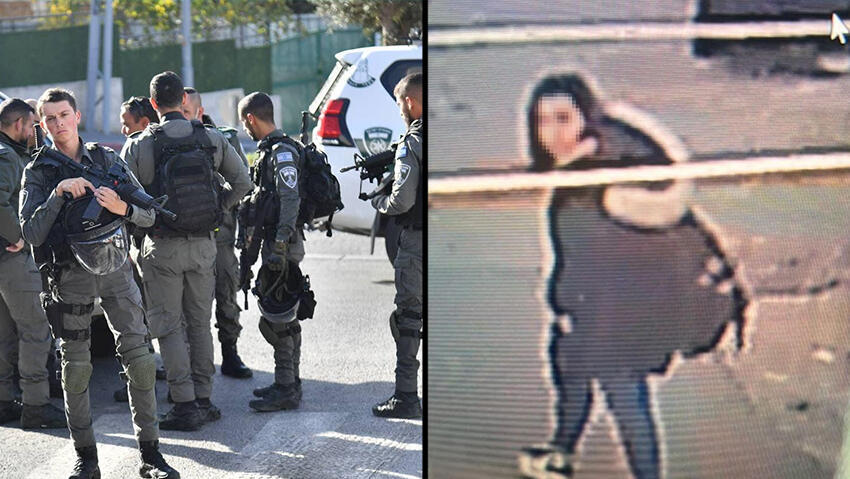

The scene of the Jerusalem terror attack on Wednesday and teenage suspect
(Photo: Yoav Dudkevitch)
Firstly, it's the quantity, During the 2015 wave, there were more than 30 terror attacks, and the current numbers are nowhere near that. Secondly, it's the incitement on social networks and on the Palestinian streets, which still have not reached the levels of 2015
Thirdly, it is that the current attacks are not accompanied by mass rioting in East Jerusalem and in other Palestinian cities. Fourthly, it's the security coordination with the Palestinian Authority, which is now far better than it was back in 2015.
Nevertheless, Israel is hit by a terror attack every other day, carried out by incited youth, using all sorts of weapons. There are five steps Israel must take in order to end this way before it gets out of control:
Monitoring of social networks: The lone wolf attacker phenomenon is a riddle for the counter-terrorism apparatus because the assailant usually isn't associated with an organization and they don't plan the attack in advance.
5 View gallery
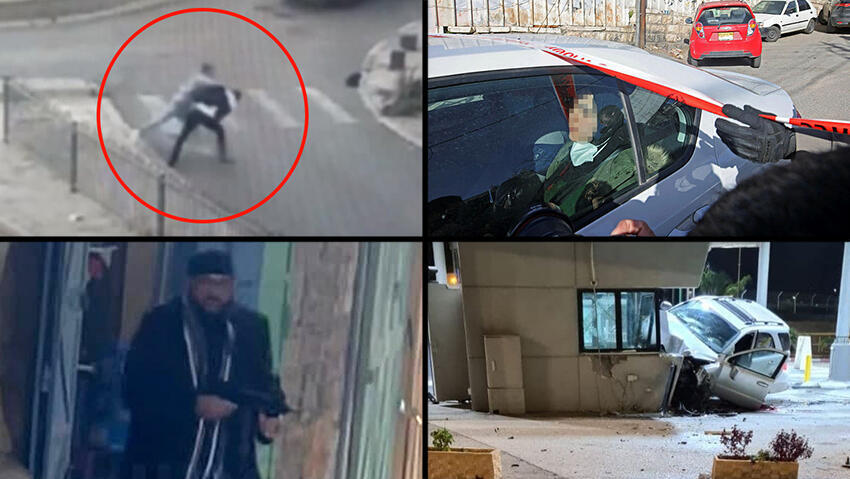

Latest terror attacks in Israel
(Photo: AFP, Defense Ministry's Crossings Authority, Police spokesperson)
Therefore, security forces make an effort to monitor incitement, which includes calls to carry out attacks on social networks. And from time to time, when they do manage to identify calls to violence, the IDF and the Israeli security forces work together with the Palestinian security in order to locate the suspect.
According to the data, in the past week the number of IDF's warning calls to individuals identified as likely to commit an attack has doubled. In addition, the forces in the field who make the arrests and conduct activities against terror instigators has increased from some 60-70 every night in the last month, to almost 100 in the past week.
Besides arrests, the IDF and the Israeli security forces also act against major instigators. In northern West Bank, for instance, flags, posters, and equipment were confiscated from a house of an individual who was making calls to carry out an attack.
Another step is avoiding operational errors: Security forces on the front line are briefed to act in the same manner as in previous terror waves to keep themselves safe. Operational mistakes lead to what is considered by the terror groups a "successful" attack attempt. As a result, the assailant becomes not only a martyr but also inspires others to imitate the act.
The forcer on the front line are also a preferred target by the lone attackers. The investigation, regarding the car-ramming attack on an Israeli checkpoint last week, shows that the assailant drove around and looked for security forces, and after he couldn't find any, he arrived at the checkpoint and attempted to run over civilian security guards. The investigation also found that the security guards should have been more careful with their safety and caution procedures.
The coordination with the PA and the weakening of Hamas's incitement: The security coordination with the PA is better than it's been in a while. An example of that is the rescue of the two members of the Breslov Hassidic movement, who accidentally entered the city of Ramallah last week. In addition, the Palestinians make arrests of instigators, terror operatives, and issue warnings to their relatives. In one such case last week, an alert was received about a lone attacker who intended to throw an explosive device at IDF soldiers, as a result, his family was located, warned, and he was questioned.
5 View gallery
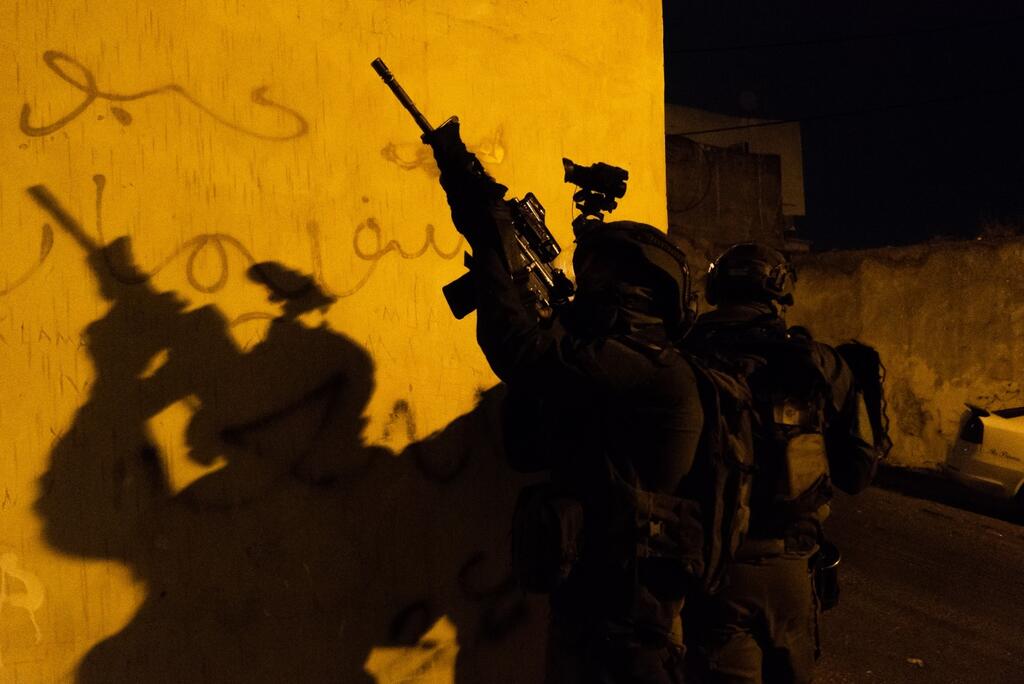

IDF forces conduct operations in the West Bank against Hamas
(Photo: The IDF Spokesperson's Unit)
Furthermore, the Shin Bet along with the IDF is preparing for next Tuesday, November 14, the anniversary of Hamas' establishment. For weeks arrests have been made and every activity of Hamas in West Bank has been monitored. The concern is that a sequence of terror attacks may be carried out by Hamas operatives on that day, with the terror group's incitement campaign already in full swing.
Deterring the family of the assailant: One of the things that were proven as very useful, and prevented dozens of attacks, is actions taken against the family of the attacker. These acts include the demolition of their houses, prevention of entry to Israel in order to work, and arrests of family members.
This is done in an effort to force family members of potential attackers to alert the security forces if they notice any changes in his behavior, or his patterns of action. It has already happened in the past and it is proven to be a very useful tool against lone assailants.
And the last step is operational professionalism: The first seconds of any attack are crucial for the outcome. An attack that ends with a rapid, sharp response, and the neutralization of the attacker - without casualties among civilians or security forces -would make a potential terrorist think twice, and such an event won't be used as an example to incite others.


